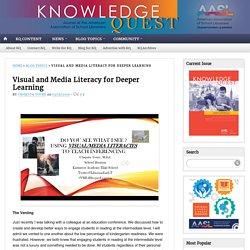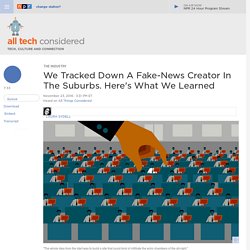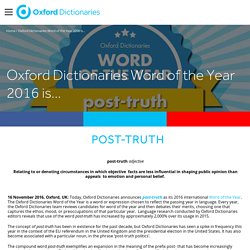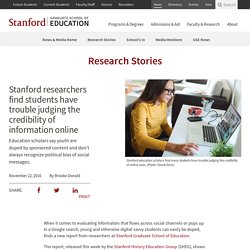

Visual and Media Literacy for Deeper Learning. The Venting Just recently I was talking with a colleague at an education conference.

We discussed how to create and develop better ways to engage students in reading at the intermediate level. I will admit we vented to one another about the low percentage of kindergarten readiness. We were frustrated. However, we both knew that engaging students in reading at the intermediate level was not a luxury and something needed to be done. At the end of the conversation she asked if I would be willing to conduct a literacy workshop for teachers after school hours. My Goals for Professional Development My goals for the workshop were to: Define visual and media literacyDemonstrate how to use media to teach inference, make judgments, and develop conclusions While leading this workshop was not an expectation of the district or the library services department, it was an honor to present to literacy guidance to these teachers and I was excited about the workshop. Who Am I?
Who created this message? X. Fake or real middleschool 8. New Graph Tries To Break Down Real And Fake News — How'd They Do? We Tracked Down A Fake-News Creator In The Suburbs. Here's What We Learned : All Tech Considered. "The whole idea from the start was to build a site that could kind of infiltrate the echo chambers of the alt-right.

" Fanatic Studio/Getty Images hide caption toggle caption Fanatic Studio/Getty Images "The whole idea from the start was to build a site that could kind of infiltrate the echo chambers of the alt-right. " A lot of fake and misleading news stories were shared across social media during the election. We wondered who was behind that story and why it was written. We tried to look up who owned it and hit a wall. By day, John Jansen is head of engineering at Master-McNeil Inc., a tech company in Berkeley, Calif.
Jansen started by looking at the site's history. Jansen is kind of like an archaeologist. The "Denver Guardian" was built and designed using a pretty common platform — WordPress. "That was sort of the thread that started to unravel everything," Jansen says. The sites include NationalReport.net, USAToday.com.co, WashingtonPost.com.co. Interview Highlights Yes. Can I ask who? Oxford Dictionaries Word of the Year 2016 is... Post-truth adjective Relating to or denoting circumstances in which objective facts are less influential in shaping public opinion than appeals to emotion and personal belief. 16 November 2016, Oxford, UK: Today, Oxford Dictionaries announces post-truth as its 2016 international Word of the Year.

The Oxford Dictionaries Word of the Year is a word or expression chosen to reflect the passing year in language. Every year, the Oxford Dictionaries team reviews candidates for word of the year and then debates their merits, choosing one that captures the ethos, mood, or preoccupations of that particular year. Language research conducted by Oxford Dictionaries editors reveals that use of the word post-truth has increased by approximately 2,000% over its usage in 2015. Head Transplant Patient Will Use VR - Real or Fake? Last year, Italian neuroscientist Dr.

Sergio Canavero shocked the medical establishment when he announced that he would be able to transplant a human head onto a new body by 2017. He even gave a high-energy Tedx talk about the surgery. But the project was greeted with skepticism. The medical community has called the project junk science, reports Sam Kean at The Atlantic—one doctor even suggested that those involved should be charged with murder if it fails. Researchers find students have trouble judging the credibility of information online. When it comes to evaluating information that flows across social channels or pops up in a Google search, young and otherwise digital-savvy students can easily be duped, finds a new report from researchers at Stanford Graduate School of Education.

The report, released this week by the Stanford History Education Group (SHEG), shows a dismaying inability by students to reason about information they see on the Internet, the authors said. Students, for example, had a hard time distinguishing advertisements from news articles or identifying where information came from. "Many people assume that because young people are fluent in social media they are equally perceptive about what they find there," said Professor Sam Wineburg, the lead author of the report and founder of SHEG.
"Our work shows the opposite to be true. " The researchers began their work in January 2015, well before the most recent debates over fake news and its influence on the presidential election.